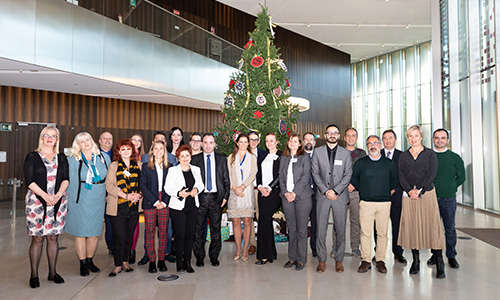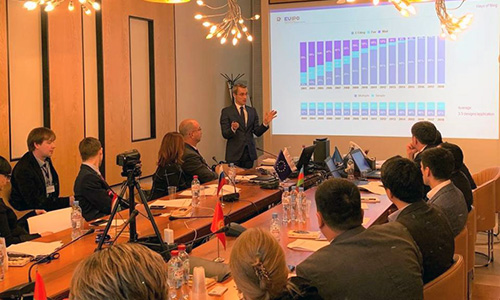The European Economic and Social Committee (EESC) hosted a debate on development cooperation policy at its December plenary session, stressing that it was essential to upgrade relations between EU and African civil society in order to move from help to development to partnership.
Relations between European and African civil society must be at the heart of the EU-ACP Partnership Agreement, in which continued – and even increased – engagement by the EESC and its bodies should be acknowledged as a central element. Only in this way can EU civil society help African civil society to become a reliable and trustworthy partner for investors.
At the debate held in Brussels on 12 December 2019, the EESC made it clear that, after playing a major role in fostering civil society relationships under the current partnership framework – the Cotonou Agreement – relations with African countries needed to be upgraded so that it was possible to move from help to development to the next stage: building international partnerships.
EESC president Luca Jahier underlined that development and cooperation policy was undergoing structural changes, shifting from a donor-recipient relationship towards peer-to-peer cooperation and dialogue based on complementary interests and that this trend could already be perceived in the upcoming ACP-EU relations, as well as in the new ties developed between the EU and Africa. The 2030 Agenda is the best example of this new approach in international cooperation, because, regardless of the geographical and cultural background, we are all facing the same challenges and we need to act together, leaving no one behind
, he said.
He then indicated that this also meant making a stronger commitment to working together to address common issues. It has become crucial to politically acknowledge the contribution of civil society to the new partnerships forged by the EU in the world, with the ACP-EU Partnership Agreement at the forefront,
he pointed out. I hope the current negotiations will provide a stronger role for organised civil society and for the EESC. The future of Africa is the future of Europe. We need a new African Renaissance
.
The important work carried out by civil society organisations was highlighted by Jutta Urpilainen, European commissioner for international partnerships, who maintained that The European development model must evolve with global realities. We all need to be involved in and committed to the Green Deal. Sustainable development and eradicating poverty in the world are a priority of my mandate. We should continue to leave no one behind but also to give a role to everyone, especially to civil society organisations, that are always on the frontline of the different issues
.
Isabelle A. J. Durant, deputy secretary-general of the United Nations Conference on Trade and Development (UNCTAD), mentioned that multilateral agreements could help countries that had difficulties in international trade and that they were the only way to achieve a win-win situation for all actors involved. EU and Africa face the same opportunities and challenges, such as digitalisation and climate change.
Mikolaj Dowgielewicz, permanent representative of the European Investment Bank (EIB) to the European institutions in Brussels, referred to the need to mobilise different financial institutions to bring in private investment and to the EIB’s contributions to building infrastructure in Africa.
The debate was held in conjunction with the approval, by the EESC plenary session, of an own-initiative opinion on External aid, investment and trade as instruments to reduce economic migration, with a special focus on Africa, drafted by Arno Metzler and Thomas Wagnsonner.
Mr Metzler declared: The challenges for turnaround in Africa are so big that they need all partners from civil society and everything available to tackle them in a successful and promising way
.
Mr Wagnsonner added: External aid, investment and trade as instruments for development means more than eradicating extreme poverty. It means a decent life based on quality jobs. That is, nothing less than creating a middle class with clear perspectives for a better life. Involvement of organised civil society ensures the fight against poverty, not against the poor
.
For further information on the work and activities carried out by the REX section, please consult our website.




